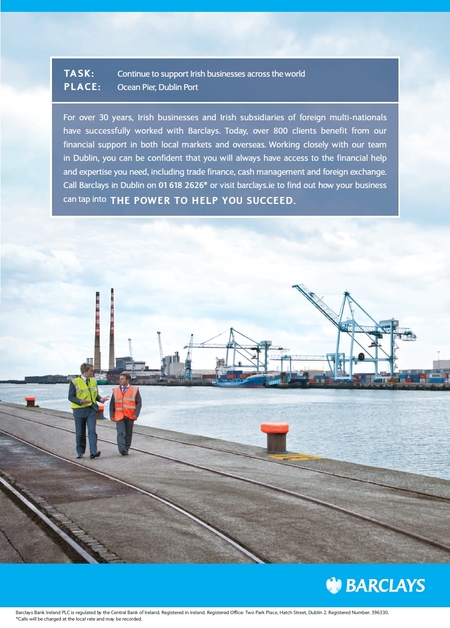
Keith Boyfield
The outcome of both the IMF/World Bank annual meeting and the more recent G20 summit in Cannes has reinforced the sentiments voiced by that central bank governor. The flaws in the euro regime, not least the absence of any agreed procedure for exit from the monetary union, have been explicitly exposed by the markets. As another governor of a leading central bank in the southern hemisphere commented to me in Washington DC, 'Europe is bankrupt'.
To outside observers the weakness of the eurozone - particularly its southern rim - is all too evident. Indeed, Europe's inability to resolve the euro crisis has exasperated the world's political and financial elite. Gao Xiqing, chief investment officer of the China Investment Corporation, resorted to lecturing the audience at one of the IMF/World Bank panel discussions on how to run a capitalist economy. Given that George Soros was a fellow panel member, this was richly ironic. 'Culturally, you need to change your way of living and change your way of spending', Gao Xiqing pronounced. Since he is potentially one of the biggest investors in the proposed eurobonds to be issued by the European authorities, what he says carries a lot of weight.
It was noticeable, too, that at the G20 Summit held in rain-soaked Cannes, the Chinese were underwhelmed by European political leaders entreaties to invest in euro-denominated assets, most notably government issued debt. The Chinese were not buying their argument. Furthermore, what is abundantly clear is that the Chinese will expect to extract the best possible deal in return for investing in eurozone assets. In practice, that involves winning concessions on EU imposed import barriers, voting powers in international forums such as the IMF and gaining some ground on controversial diplomatic issues such as the future of Tibet and Taiwan. With 1.3 billion mouths to feed back home, don’t expect the Chinese government to be overly charitable.
A nasty twist to this reality check was also evident in the first week of November when Stuart Gulliver, chief executive of HSBC, warned that Asia is facing the threat of a potential economic retrenchment as a result of a credit squeeze, principally linked to the impoverishment of a whole raft of struggling European banks. ‘The strong increases in credit availability in Asia that has supported demand growth cannot continue indefinitely,’ cautioned Mr Gulliver. This is a serious dilemma since many rapidly growing Asian economies depend on foreign banks for a large proportion of their funding. According to the Bank for International Settlements (BIS), continental European banks accounted for 21 per cent of the $2,520bn of international bank loans outstanding in Asia (excluding Japan) as of the second quarter of 2011.
The unmistakable message to emerge this Autumn is that the eurozone crisis is already beginning to have serious repercussions elsewhere in the world, including those regions where economic growth has withstood the dampening effects of the global financial crisis following the collapse of Lehman Brothers.
European political leaders remain committed to keeping the euro project on the road. A cynic might observe that this is not unconnected with the fact that French and German banks have invested such substantial sums in the debt issued by the ‘Club Med’ members of the eurozone. Indeed, it is estimated that French banks are owed €680 bn by the Club Med contingent, equivalent to nearly a quarter of France’s annual GDP. Germany’s exposure is significantly less, but is still a substantial slice of its annual GDP. In the light of these figures it is hardly surprising to discover that France now ranks as the largest market for single name credit default swaps with a net $23.8 bn outstanding compared to only $15.7 bn a year ago.
The need for implementation
Christine Lagarde, who demonstrated yet again why she is such a class act at this Autumn’s IMF/World Bank Annual meeting in Washington DC, insists that the world's finance ministers are unwavering in their determination to tackle the crisis of confidence that has hit European economies and the euro. She emphasises ‘implementation’ as the crucial factor that will address the debt problems so apparent across the southern rim of the eurozone. By way of ensuring that implementation is fulfilled, the IMF will be sending its own officials to check on what the Italian government is doing in practice to address the fiscal adjustment and structural reforms judged necessary by the Fund. At the Cannes Summit ,Ms Lagarde said that she welcomed ‘Italy’s decision to invite the IMF to intensify our surveillance and monitoring work.’
In reality, this move was a demonstration of the power and influence of the so-called Frankfurt Group, a select clutch of politicians and non elected officials who now constitute the real political power in Europe. As well as President Sarkozy and Mrs Merkel, the group comprises the newly appointed ECB President, Mario Draghi; the omnipresent Luxembourger, Jean-Claude Juncker; the former French finance minister and IMF managing director, Christine Lagarde; and the EU President and scribbler of poetic Haiku verse, Herman van Rompuy, who used to be the Prime Minister of Belgium. Following a glittering bash for retiring ECB President, Jean Claude Trichet, at the Opera House in Frankfurt on 19th October, it was decided that a more hands-on, pro active approach was required to jolt recalcitrant euro member states into addressing their fiscal shortfalls. And it was through exerting their collective raw political pressure that the members of the Frankfurt Group effectively ended the political careers of both George Papandreou and Silvio Berlusconi, who now looks as though he will be faced with a much stiffer property tax on his various villas.
In a complimentary move the European Commission has sent a taskforce headed by Horst Reichenbach, a former Vice President at the European Bank for Reconstruction & Development, to examine the books at the Greek finance ministry. His team are empowered to offer ‘technical assistance that Greece may need in order to be able to deliver programmes worked out with the EU and the International Monetary Fund’, in the words of the official press release. But this initiative has gone down badly with the Greek people since for some of them, particularly those in the older age cohort, it rekindles unhappy memories of the Axis occupation of Greece. Unflattering cartoons of German politicians, along with Herr Reichenbach dressed in German military uniform, appear regularly in the Greek press and fraternal relations are set to deteriorate further as the austerity programme, favoured by the German paymasters, begins to bite. By way of illustration, Greek motorists are reported to be evading paying tolls on highways built and managed by the German operator, Hochtief, simply by lifting the toll barriers: the toll booth collectors merely shrug their shoulders and turn a blind eye.
Wash-out in Cannes
President Sarkozy evidently pinned high hopes on the G20 Summit coming up with a master plan to resolve the euro crisis. However, democratic distractions springing from Greece - where the electorate were surprisingly promised a referendum - confounded his ambitions and the Cannes Summit ended in disarray. Indeed, Mrs Merkel left earlier than scheduled and it was all too evident from their faces that the world’s political leaders had failed to hammer out any agreed strategy to address the chronic debt problems faced by a clutch of eurozone members.
One of the main themes to emerge from both the IMF/World Bank Annual Meeting and the G20 Cannes Summit was the reluctance of so many European political leaders to acknowledge the true extent of the euro debt problem. Sovereign governments have held out against surrendering their powers to decide fiscal policy and, in the case of Italy, concerns about levels of debt were dismissed by Prime Minister Silvio Berlusconi as a ‘passing fashion.’ But then the Frankfurt Group began to exert pressure with Mrs Merkel placing a call through to the Italian President suggesting a change in Prime Minister. As the Italian authorities found it more and more difficult to raise debt at an affordable price, Mr. Berlusconi was vanquished and replaced by the ultimate technocrat, Professor Mario Monti, a former EU Commissioner who has been dubbed ‘Mr Spread’ by Italian deputies, anxious to see the premium Italians are obliged to pay on new issues of government debt narrow when compared with newly issued German government bonds.
The harsh fact now being learned is that investors will shun the eurozone in increasing numbers unless the member countries within the eurozone swallow the bitter medicine which the Irish have been obliged to do. In reality, the eurozone is shaping up to fulfil the worst fears of some of its most perceptive critics. Professor Martin Feinstein of Harvard University, who in a remarkably prescient article published in 1997 warned that the eurozone risked exacerbating ‘long-standing animosities based on history, nationality, and religion.’ Feldstein also warned that, ‘If the German public sees the inflation rate rise under EMU, it will become increasingly antagonistic toward the EMU arrangement and toward the countries that vote for inflationary monetary policy.’ Recent history has demonstrated Professor Feldstein’s concerns to be all too accurate.
The problem surrounding the eurozone, as it totters on from day to day, is one centred on incompatible expectations. EU citizens in the northern sphere of the eurozone expect their counterparts in the southern sphere to knuckle down and restructure their economies, in the process tackling supply side rigidities. It turns out that they have been minded to do no such thing; what is more, some of their political leaders consistently deceived the EU authorities and failed to deliver on a raft of promises. In the case of Greece, the authorities were following in a well worn tradition.
As two leading American academics, Kenneth Rogoff and Carmen Reinhart, point out in their recent book This Time it is Different, ‘From 1800 until well after World War II, Greece found itself virtually in continual default.’ Given this long tradition it is disturbing to note that no serious attempt was made to question why Greece had, within a few years, been able to meet the entry requirement of having a public-sector deficit less than three per cent of GDP by 2000 after years of high public deficits. As the British economist Brian Sturgess concludes, ‘Nor were there any effective political repercussions, including the possible threat of expulsion from the eurozone, when revisions to economic statistics showed consistently, from as early as 2002 to 2010, that Greek data were seriously inaccurate.’ Only with time, and when the chips are down, as they were at the G20 Summit in Cannes, have EU political leaders threatened Greece with expulsion from the eurozone.
The Greek experience underlines why Ms Lagarde is so committed to the need for ‘implementation’ , even if it has to be policed by her own officials. Yet the elegant Ms. Lagarde, with all her undoubted skills and experience, is not necessarily the most suitable individual to mastermind enforcement action on erring eurozone members. Ms Lagarde is a French politician committed to the euro project; this commitment suggests that she will be prepared to channel a massive sum of money, including funds supplied by Britain, into saving this cherished European dream. In the light of this fact, one cannot help wondering whether it was wise to appoint yet another French citizen to the highest office within the IMF. The French have held the post of Managing Director of the IMF for a cumulative 35 years since the Fund’s establishment. Perhaps, on reflection, it would have been a better idea to give another national a chance, and one from outside the beleaguered eurozone.

